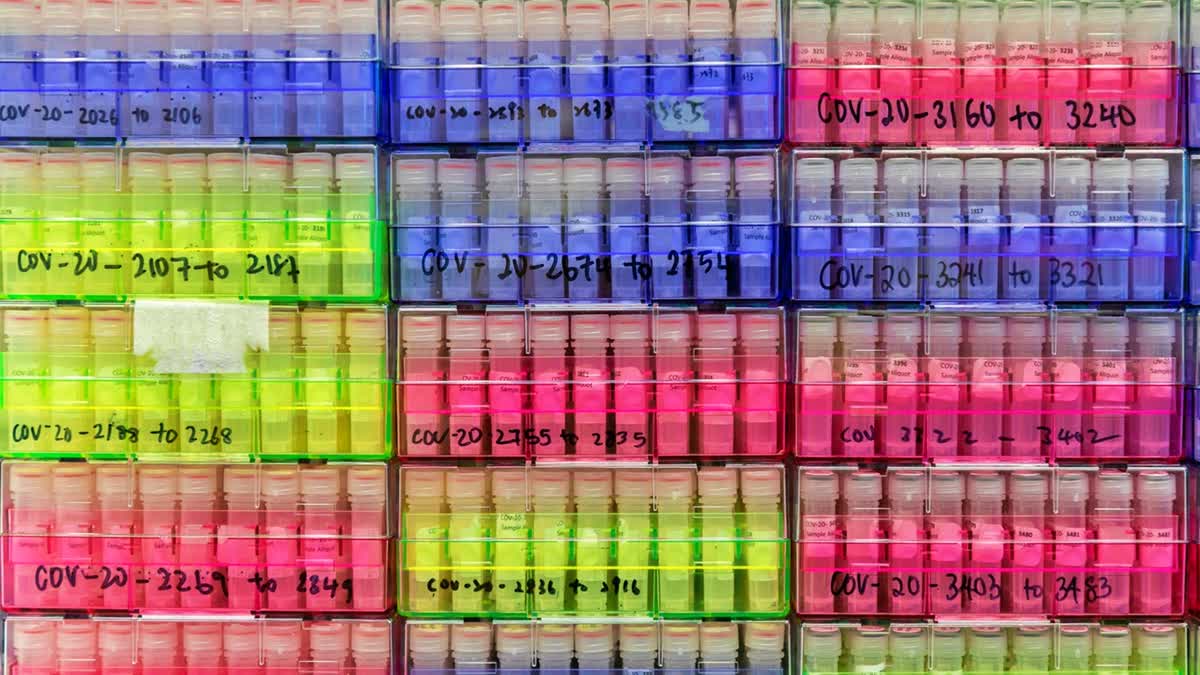Hyderabad: The World Health Organization (WHO) has declared the recent COVID19 variant JN.1 as a separate variant of interest (VOI) from the parent lineage BA.2.86, citing its rapidly increasing spread.
It was previously classified as VOI as part of BA.2.86 sublineages.
"Based on the available evidence, the additional global public health risk posed by JN.1 is currently evaluated as low. Despite this, with the onset of winter in the Northern Hemisphere, JN.1 could increase the burden of respiratory infections in many countries," a statement from the global health body read.
As regards to the protection from the virus, the agency said the current vaccines continue to protect against severe disease and death from JN.1 and other circulating variants of SARS-CoV-2, the virus that causes COVID-19.
"WHO is continuously monitoring the evidence and will update the JN.1 risk evaluation as needed," it said.
-
#COVID19 is not the only respiratory disease circulating. #Influenza, RSV and common childhood #pneumonia are on the rise.
— World Health Organization (WHO) (@WHO) December 19, 2023 " class="align-text-top noRightClick twitterSection" data="
Take measures to prevent infections and severe disease using all available tools.https://t.co/yEFkir3Bp4
">#COVID19 is not the only respiratory disease circulating. #Influenza, RSV and common childhood #pneumonia are on the rise.
— World Health Organization (WHO) (@WHO) December 19, 2023
Take measures to prevent infections and severe disease using all available tools.https://t.co/yEFkir3Bp4#COVID19 is not the only respiratory disease circulating. #Influenza, RSV and common childhood #pneumonia are on the rise.
— World Health Organization (WHO) (@WHO) December 19, 2023
Take measures to prevent infections and severe disease using all available tools.https://t.co/yEFkir3Bp4
Tracking JN.1- Previously, JN.1 was tracked as part of BA.2.86, the parent lineage that is classified as a variant of interest (VOI), a document from the health body said. It also marked the additional public health risk posed by JN.1 as low at the global level. It is anticipated that this variant may cause an increase in SARS-CoV-2 cases amid a surge of infections of other viral and bacterial infections, especially in countries entering the winter season, it said.
There are currently 7344 JN.1 sequences available from 41 countries, representing 27.1% of the globally available sequences in epidemiological week 48 (November 27 to December 3, 2023), the agency said adding, "This is a rapid increase in the global proportion of JN.1 from 3.3% in epidemiological week 44 (October 30 to November 5, 2023)."
This rapid growth is observed across all the three WHO regions with consistent sharing of SARS-CoV-2 sequences.
Wastewater data from multiple countries approaching the winter season points at a large wave of SARS-CoV-2 infections in the community, the document suggested.
In India, a recent uptick in COVID-19 cases is witnessed ahead of the festive season. With Christmas and the New Year round the corner, the surge in the number of cases is expected. Doctors have advised people to wear masks, avoid gatherings and maintain a healthy diet, while some states too have issued similar advisory to the elderly.
Sources said the Union Health Minister Mansukh Mandaviya will review today(December 20) the preparedness of health facilities and services in the wake of an upsurge in respiratory illness cases, including those of Covid, in some states.
It is pertinent to note India's first JN.1 case was detected in a 79-year-old woman in Kerala, who had mild symptoms, on December 8. Prior to this, a traveller from Tamil Nadu tested positive for the JN.1 variant after arriving in Singapore.
Read More
- Karnataka govt issues fresh guidelines ahead of Christmas and New Year fete amid Covid
- Centre asks states to maintain constant vigil as Covid cases rise and JN.1 sub-variant surfaces
- Role of media key to clearing myths, doubts about vaccines: Health expert
- COVID-19 sub-strain JN.1 detected in Kerala woman



